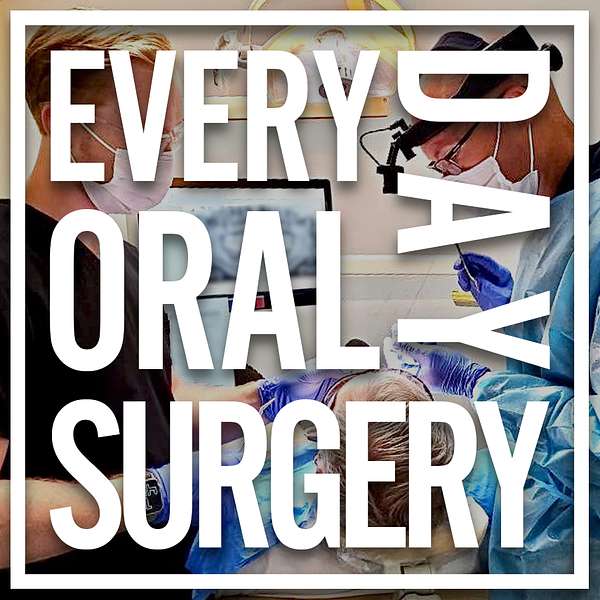
Everyday Oral Surgery
Everyday Oral Surgery
Dr. William Flick: Tips For Surgeons Wanting To Work In Academics Part-time
Use Left/Right to seek, Home/End to jump to start or end. Hold shift to jump forward or backward.
Today we sit down with long-time friend and mentor, Dr. William Flick, to talk about the balance between working in private practice and part-time academics. To kick things off, Bill shares a brief summary of his training and current practice setup. After hearing about his stints at the University of Illinois and in the US Airforce, Bill sheds light on how to teach residents in a surgical setting. On this topic, he tells us why it is so important to allow students to learn with their hands, and why it can be difficult to not let them make crucial errors on patients. As our conversation develops, we ask Bill to share a little bit of information on giving back to the profession of oral surgery. He tells us about the importance of jumping at whatever opportunity comes your way, as well as the need to stick to it. Later in the show, we find out from Bill why private practice professionals are so useful to the academic setting. To conclude the show, we give Bill our rapid-fire questions where we find out about the best book he’s read in the past year, which forceps he uses to extract tooth number five, who has influenced his surgery career most, and much more!
Key Points From This Episode:
- Introducing today’s guest and our host’s long-time mentor, Dr. Bill Flick.
- Bill gives a brief summary of his training and current practice setup.
- How to teach residents in a surgical setting.
- The importance of letting students learn with their hands.
- What Bill says to those who want to give back to the profession, but might not be equipped to do so.
- How one can stay in academics despite red tape and poor compensation.
- How to achieve a balance between private practice and academics.
- Ways Bill has changed his practice over the years.
- Finding ways to communicate on a patient’s level.
- We conclude the show with our rapid-fire questions!
Tweetables:
“It’s a lot more challenging teaching students in a surgical setting as opposed to a classroom. There is this tendency to want to jump in and demonstrate but the resident only really learns if it’s their hands doing the work.” — Dr. William Flick [0:02:44]
“You have to jump at whatever opportunities are available to you. And then you have to be persistent and you have to stick with it.” — Dr. William Flick [0:04:41]
“For full-time academics, it’s all about accomplishing the procedure the way it should be done. In the real world, it’s doing what the patient wants to have done and how to compromise what you can do to make both ends meet.” — Dr. William Flick [0:09:17]
Links Mentioned in Today’s Episode: